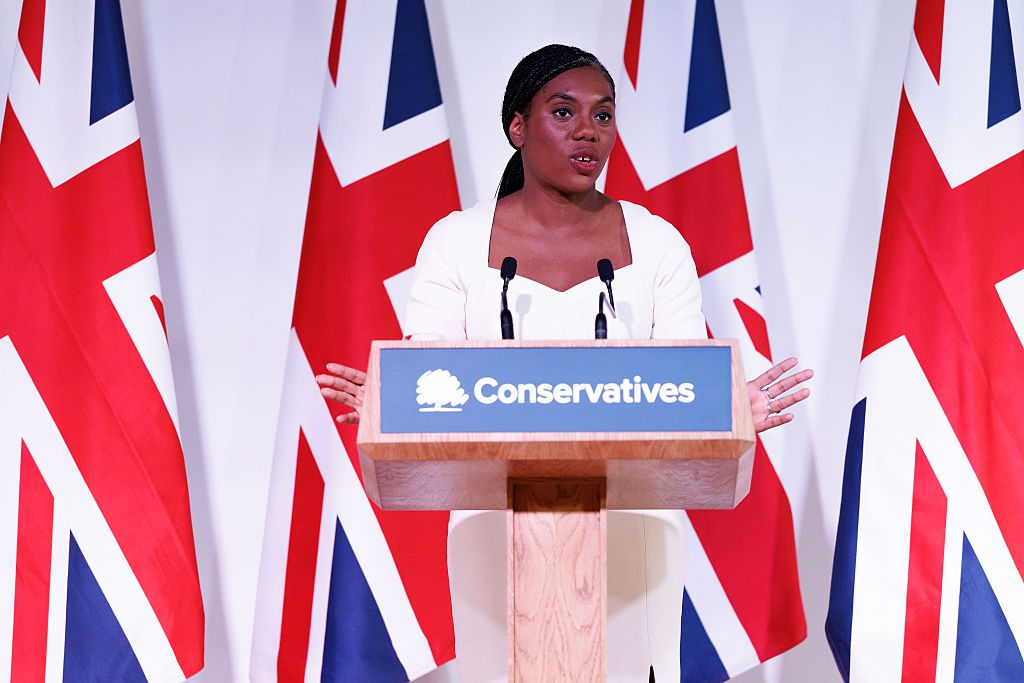In a speech earlier this week, Tory leader Kemi Badenoch offered to help the Government find more savings in its welfare budget. This move followed on from her warning that the UK may require a bailout from the International Monetary Fund (IMF) if Labour does not reverse course on economic policy.
The economy is one area where Badenoch could find a winning message. Indeed, a focus on the country’s economic woes may be her chance to rescue her party — and secure her own political future.
The first reason for this is because economic trouble clearly lies ahead for Britain. Debt is near 100% of GDP, while growth and productivity are stagnant; 30-year gilt yields have increased to their highest level in almost three decades — above those of Greece, Spain and Portugal.
Chancellor Rachel Reeves could cut spending. But the experience of this summer’s welfare reform fiasco shows how difficult that is for this government, despite its huge majority. Tax rises are difficult, too, given the Chancellor’s pledges not to raise income tax, VAT and employee National Insurance. Taxes on land values and property wealth could be explored — and there is a strong case for them — but they are fraught with political risk.
It is therefore easy to see why Badenoch has now spotted an opening. Prosecuting a case against Labour on tax increases, borrowing, and welfare spending could soon prove to be a strategically astute move.
The second factor is credibility: on this issue, unlike most others, the Tories are making gains. In February, pollster More in Common found that Badenoch had a clear lead over both Keir Starmer and Nigel Farage when considering who would be best at handling the economy. Other polls from Deltapoll and YouGov consistently support this point. If the economy and public finances increase in salience, then this could benefit the Tories.
Some may expect Reform to benefit in the event of a fiscal crisis. However, given the party’s pledge of an estimated £70 billion in tax cuts, not to mention less than clear details around public spending, one can see why voters do not yet trust Farage on the economy. That the Tories are seen as more experienced — and less politically extreme — than Reform is another contributing factor here.
Winning the public’s trust on this issue will be an uphill battle for any Tory leader. After all, Liz Truss’s 2022 mini-budget brought about the biggest collapse in support for any government in modern British history, and saw the Tories junk their reputation for economic competence.
Yet while Badenoch is frequently depicted as an online culture warrior, she was the only 2022 Tory leadership candidate other than Rishi Sunak to explicitly oppose Truss’s fiscal policies. When every other leadership contender excluding Jeremy Hunt then backed Truss over Sunak, along with a plurality of Tory MPs, Badenoch refused to endorse her.
What’s more, her appointment of Mel Stride as Shadow Chancellor is instructive: economically dry, he was one of the staunchest and most public critics of Truss and her policies. Both have the credibility necessary to draw clear blue water between their party and the experiment of autumn 2022.
This may all come to nothing. If the bleakest diagnoses are right, the Tory Party is already a walking corpse. But if it wants even the faintest chance of avoiding that fate, it must treat the economy not as one issue among many, but as the central battlefield on which its survival depends. Anything less would be political suicide.
